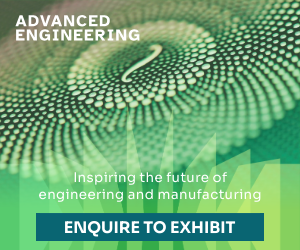In the ongoing debate about plastics packaging and sustainability, the role and responsibilities of mould makers and machine tool providers and the impact on the environment are evolving.
Their challenge, more and more, is focused on adapting product design and production to new materials and changing consumer attitudes behaviour.
Packaging is both a science and an art – simultaneously having to both protect and preserve products whilst, at the same time, appeal, aesthetically and intellectually, to customers.
Modern society depends on a wide variety of packaged goods – from food and beverages through to medicines: to name but a few.
The product packaging process has, over recent years, also evolved from a segmented approach to fully-automated production lines where products, like milk and their exterior packaging, (manufactured in plastic or cardboard), are processed simultaneously to enable immediate distribution.
These modular packaging lines comprise injection moulding operations installed with a variety of blow moulds, thermoforming moulds, deep cavity rigid plastic moulds and multi-cavity moulds continuously churning out thousands of parts per minute to meet demand.
Over the last decades, plastic has emerged as the preferred material-of-choice for packaging solutions due to its chemical inertness, versatility and adaptability, and (relative) cost efficiency for bulk processing.
However, extensive consumption leading to wastage has resulted in increased environmental concerns about the impact and effects of plastic packaging.
This impact has increased environmental consciousness among global consumers and packaging producers alike – putting pressure on manufacturers to adopt new policies, manufacturing processes and product design to reduce the harm and long-term impact of unchecked and unregulated plastic consumption.
It means that plastic packaging supply chain partners including consumers, producers, suppliers, governments and policy makers are working collectively to achieve sustainability in the future.
Precision machine tool manufacturers such as GF Machining Solutions, along with mould makers, are at the forefront of these developments – working in partnership to create sustainable solutions.
Mould tool manufacturers categorise the emerging industry challenges into three key areas: product design, injection material and manufacturing technologies.
Modern product packaging is designed for ease of use, long lifecycles and perfect product preservation whilst providing a distinctive, attractive consumer experience.
The conscious behaviour of consumers and producers is pushing investigation into the use of new materials for improved biocompatibility, recyclability and longer shelf life and their feasibility for industry integration.
GF Machining Solutions supports plastic injection mould makers with its advanced technologies and innovation, so they are able to achieve desired manufacturing solutions and results and meet their social responsibilities.
GF Machining Solutions’ technology innovations enable new design tends to be realised and the ability to machine a range of tool steels to cater for the use of new materials used in the injection process.
Milling technologies
Through GF Machining Solutions’ simultaneous five-axis, high-speed precision milling technologies, the company is able to provide best-in-class solutions for high-precision mould tool inserts, machined to exacting surface finishes – negating the need for environmentally damaging and labour-intensive secondary finishing processes.
Laser technologies
The company’s laser technology brings design innovation to consumers by directly structuring the mould insert surface with aesthetic and functional textures.
Laser technology enables the machining of a range of varied materials, perfectly replicating digitally created/designed surfaces and textures on 3D cavities eliminating the need for etching processes
With customers and industry partners, GF Machining Solutions is continuously searching for the best solutions for the injection of new, sustainable and biocompatible plastics, as well as new ways to design and produce moulds for these materials.
Mould requirements vary significantly as these new materials differ from traditional plastics in their chemical composition and thermal behaviour and need to be machined from high-resistance mould tool steel and used in the injection process with extended temperature control.
With 70 years’ experience and expertise as a pioneering mould manufacturing machine tool supplier, GF Machining Solutions is ideally placed to offer innovative solutions to enhance quality, reduce cost and increase productivity.
www.gfms.com/uk





